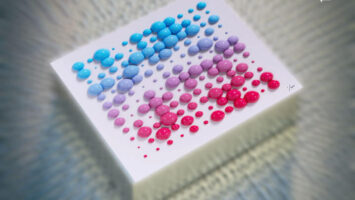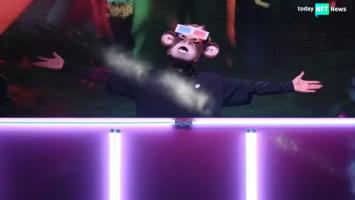SNEAK PEEK
- Yuga Labs announced a legal victory over scammers and fraudsters over BAYC’s copycat project, RR/BAYC.
- Yuga Labs said that the project was scamming buyers with fake equivalent NFTs to harm Yuga Labs.
- Conceptual artist Ripps is said to be behind a conspiracy that accuses Yuga Labs of purposely designing the BAYC NFT collection to demonstrate racist caricatures, though Yuga Labs has denied the allegation.
Yuga Labs is entitled to both an injunction and damages from Ryder Ripps and Jeremy Cahen owing to their copycat RR/BAYC NFT collection, as declared by a federal judge in a trademark infringement case the startup filed in the summer of 2022.
Yuga Labs described the judgment as a “landmark legal victory for Web3.” The company said that this isn’t only a win for them but for the overall Web3 industry to hold counterfeits and scammers accountable.
🚨🚨 Breaking: @yugalabs awarded summary judgment against @ryder_ripps, et al for false designation of origin, cybersquatting + against a finding of fair use under First Amendment/Rogers, unclean hands, and knowing misrepresentation. Damn, talk about KO👊https://t.co/nXkzQNtX4h
— Ash Kernen, Esq (@AshKernen) April 22, 2023
Cahen and Ripps defined their RR/BAYC project as an imitation secured by the First Amendment and called the lawsuit “frivolous.” For those who don’t know, the RR/BAYC project has similar copies of the real BAYC profile pictures.
Ripps, along with others, have called out what, according to them, are racist symbols and references in the BAYC artwork, though Yuga Labs has refused.
In a 2022 blog, co-founder Wylie “Gordon Goner” Aronow pointed out Ripps as a “demented troll.”
Last summer, taking it to Twitter, Cahen wrote that the case is a meaningful attempt to silence their real and justifiable artistic criticisms.
However, Yuga Labs said that the project under question was scamming buyers with fake equivalent non-fungible tokens in an intentional attempt to harm Yuga Labs at the cost of consumers.
The court ruling has findings that are in favor of as well as against Yuga Labs. The judge agreed that both Ripps and Cahen had falsely designated the origin and affirmed the position of Yuga Labs, thus, disproving the First Amendment and wise use defenses of the defendants.
The ruling favored Yuga Labs further over the defendants’ assertions that the firm had unclean hands and intentionally misrepresented the infringing activity.
John F. Walter, the U.S. District Judge, dismissed Yuga Labs’ motion for increased damages in what it called a rare case.
12/ As to the 1 remaining takedown notice, Court finds Ds fail to show requisite material misrep or bad faith in submitting takedown.
Although Yuga does not have a copyright reg for the Ape Skull logo at issue, it is clear a registration is not required to own a copyright.
— NeerMcD.eth 🚀 (@NeerMcD) April 22, 2023
The judge ruled that Yuga Labs is entitled to monetary damages and injunctive relief. Moreover, the firm has reserved the concern of damages for trial.
Jessica Neer McDonald, a trademark and copyright attorney, defined the ruling as a major win for Yuga. On the other hand, Edward Lee, a law professor, also called the ruling a remarkable victory.
Crypto and art circles are monitoring the matter closely, and certain observers predicted that the lawsuit could backfire. Yuga Labs had a few early setbacks, with the judge commenting that it was displaying a “lack of diligence” and that its claims “were not enough on the merits.”
Furthermore, Ripps seemed bullish on his possibilities of prevailing and hired Louis Tompros, a reputed attorney. Reportedly, he is popular for representing Matt Furie, creator of Pepe the Frog, in several lawsuits against far-right organizations that co-opted the cartoon frog as a symbol of white supremacy.
In February, Yuga Labs reached a settlement in another trademark lawsuit against Thomas Lehman, an RR/BAYC developer who helped Ripps develop a smart contract for the project. Also, another lawsuit is pending against fellow developer Ryan Hickman.









